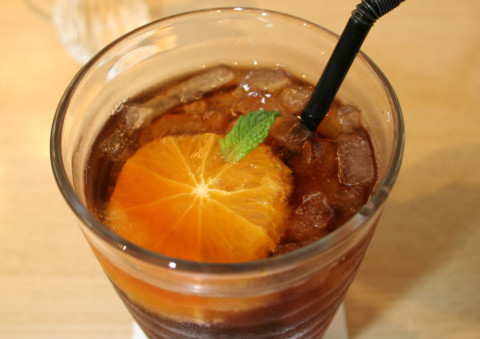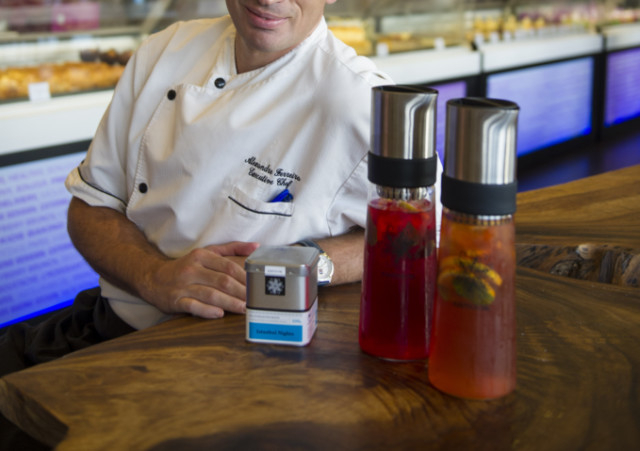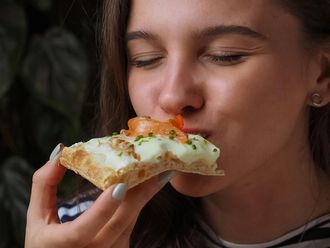
Natural, fat-free, devoid of additives, tea is the world’s second most consumed beverage after water.
Tea has evolved over the years and is no longer a beverage that people just sip out of habit. It is a means of improving wellbeing — from accentuating mental alertness and helping with diabetes, heart disease and cancer to encouraging weight loss and lowering cholesterol.
However, tea in itself cannot make anybody lose weight or lower cholesterol. Of course, a healthy eating plan needs to be in place.
Yet, tea still has a long way to go to acquire the fanfare and cultural status food has achieved in recent years, says executive chef Alexandre Ferreira who runs French bakery Pascal Tepper. “We have good quality food nowadays but we don’t have the same for tea.”
To boost modern tea culture in Dubai, Ferreira has introduced Samova’s Tea Jay (Dh35 per pack) — a concept designed to make ice-tea on the rocks — at his modern dine-in bakery.
Fragrant, smooth, invigorating and cool, the German brand is already doing brisk business just few months after its launch, thanks to the inventive technique in which it is served. It can be brewed hot or cold to make mocktails and tea sorbets.
“Making the tea in front of the customer with the Tea Jay is a whole new experience. We bring in the stylish carafe, prepare the hot tea first, pour it gently over rocks of ice in the Samova which have been infused with mint leaves and herbs and then watch as it gently brews — that’s the whole attraction,” says Ferreira.
With its innovative blends, unique flavours and soothing aroma, tea comes in many forms — from English breakfast to green, white, black, oolong, pu-erh.
Among the innumerable varieties of tea available in the market, the new kid on the block is “beettea” or beetroot tea.
Referred to as the bossy vegetable in the kitchen because of its deep red colour, beetroots are a rich source of phytonutrients and amino acids, including manganese, vitamin C, iron, magnesium and potassium to name a few. They help cleanse the liver and tonify blood, which is why tea brewed with beets is nutritionally very potent, and don’t be surprised if the urine and stool assume a reddish colour. The effect, however, is harmless and temporary.
“Beettea is the first natural, healthy tea made by combining natural beetroot with pure green tea,” says Dr Abnor Zeruki, Managing Director, Conia General Trading.
Beettea combines the potent detoxifying and anti-inflammatory properties of beetroot with that of green tea, which is rich in antioxidants. “It’s a tea which you could alternate with regular tea. You can drink as much as you like in a day,” says Zeruki.
Fruit teas are, however, different from the regular teas, says weight management coach and nutritionist Ahlaam Ali. In the sense they have fruit flavourings such as peach, raspberry etc. The effects, however, are the same.
“The benefits of any fruit [in tea] are best when fresh,” explains Ali. “For example, if dried beetroot is added to the tea, it will have some of the benefits but definitely no more than 20 per cent. As we all know, when you freeze or dry any product, you lose some of the nutrients at every stage of processing”.
— Shahana Raza is a UAE-based freelance writer













